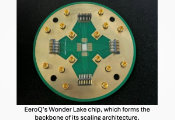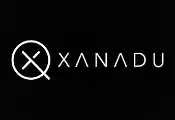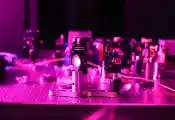EDF, Alice & Bob, Quandela and CNRS Partner to Optimize Quantum Computing’s Energy Efficiency
PARIS, France, July 10th, 2024 –- The French electric utility company EDF, along with quantum computing companies Quandela and Alice & Bob, and the French National Centre for Scientific Research (CNRS), have signed an agreement to collaborate on an innovative project to optimize energy consumption in quantum computing.
The project, with a total cost of €6.1M, is supported up to €4.5M by a France 2030 grant operated on behalf of the French state by Bpifrance, France’s public investment bank.
The project, named “Energetic Optimisation of Quantum Circuits” (OECQ), will, in the first phase, compare the energy requirements of high-performance computing (HPC) systems with those of quantum computers. This analysis will be based on relevant industry use cases and the advanced computations they require. This part of the project will provide the first measurement of energy consumption for the full stack of a quantum computer.
In the second phase, the project will focus on optimizing the energy consumption of quantum computers, addressing not only the energy required by the quantum processing unit (QPU) per se but also that of the auxiliary technologies powering the QPU, which are expected to make up a relevant share of the total quantum system consumption.
EDF , a major player in energy transition, offers industry use cases, as well as classical and quantum computing expertise. EDF will identify the relevant use cases that demand intensive computing power and therefore potentially high energy consumption.
Alice & Bob and Quandela will estimate the energy consumption that a quantum algorithm would require for the selected use cases if solved using their current quantum systems. They will then leverage the insights gained, to build and test new, more energy-efficient quantum processor prototypes.
The CNRS Quantum Energy Team |QET>[1] has provided the first methodology to tackle energy costs of the full stack of a quantum computer and plays a leading role in the development of a standard of energy efficiency at the IEEE. Throughout the whole project, CNRS will ensure methodological excellence and compute the theoretical bounds for energy consumption.
“One of the primary objectives of the OECQ project is to seize the opportunity to develop quantum computing technology in an energy-efficient manner from the outset,” said Théau Peronnin, CEO of Alice & Bob. “As quantum computing is still in its nascent stages, this project will dimension the future energy infrastructures that will support mature quantum technology. Additionally, since energy consumption is a key cost driver in quantum tech, making these processes more efficient offers a significant competitive advantage.”
“EDF is committed to the promotion of a responsible and low-carbon digital transformation. Since 2018, EDF has been involved in evaluating the benefits of quantum for our businesses. This technology brings key advantages both in terms of computational speed and energy optimization,” said Joseph Mikael, Head of Quantum Computation.
“As co-founders of the Quantum Energy Initiative, our CNRS team is extremely excited by OECQ, which is the first large project devoted to the exploration of a quantum energetic advantage in real quantum computers. It will consolidate the lead of France in quantum energetics and bring into existence a new way of practicing responsible innovation, which takes into account the fact that energetic resources are finite,” said Alexia Auffèves, CNRS Senior Scientist.
“We recognize that energy efficiency is paramount in the development of quantum computing technology,” said Niccolo Somaschi, CEO of Quandela. “As we push the boundaries of what is possible, it’s crucial that we do so in a sustainable manner.”




































